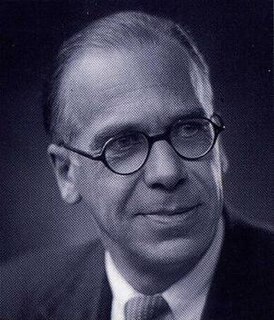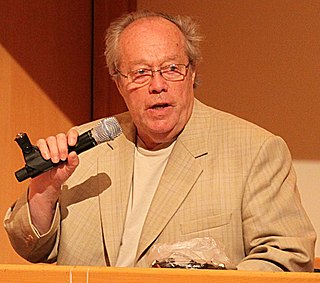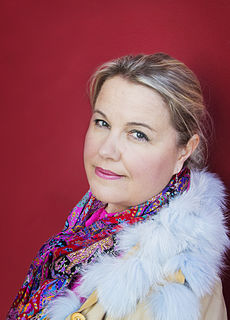Related Research Articles
The BBC Symphony Orchestra is a British orchestra based in London. Founded in 1930, it was the first permanent salaried orchestra in London, and is the only one of the city's five major symphony orchestras not to be self-governing. The BBC SO is the principal broadcast orchestra of the British Broadcasting Corporation (BBC).
Vilém Tauský CBE was a Czech conductor and composer who, from the advent of the Second World War, lived and worked in the UK, one of a significant group of émigré composers and musicians who settled there.
The Gramophone Classical Music Awards, launched in 1977, are one of the most significant honours bestowed on recordings in the classical record industry. They are often viewed as equivalent to or surpassing the American Grammy award, and referred to as the Oscars for classical music. They are widely regarded as the most influential and prestigious classical music awards in the world. According to Matthew Owen, national sales manager for Harmonia Mundi USA, "ultimately it is the classical award, especially worldwide."

William Alwyn, was an English composer, conductor, and music teacher.

Miss Julie is a naturalistic play written in 1888 by August Strindberg. It is set on Midsummer's Eve and the following morning, which is Midsummer and the Feast Day of St. John the Baptist. The setting is an estate of a count in Sweden. Miss Julie is drawn to a senior servant, a valet named Jean, who is well-traveled and well-read. The action takes place in the kitchen of Miss Julie's father's manor, where Jean's fiancée, a servant named Christine, cooks and sometimes sleeps while Jean and Miss Julie talk.

Jorma Juhani Panula is a Finnish conductor, composer, and teacher of conducting. He has mentored many Finnish conductors, such as Esa-Pekka Salonen, Mikko Franck, Sakari Oramo, Jukka-Pekka Saraste, Osmo Vänskä and Klaus Mäkelä.
Miss Julie is an opera by Ned Rorem to an English libretto by Kenward Elmslie, based on the play, Miss Julie (1888), by Swedish playwright August Strindberg. It explores the subject of the intersection of social class and illicit sexual relations in late 19th-century Sweden.

John Herbert Foulds was an English cellist and composer of classical music. He was largely self-taught as a composer, and belongs among the figures of the English Musical Renaissance.
Sakari Markus Oramo, is a Finnish conductor. He is chief conductor of the BBC Symphony Orchestra.
The Finnish Radio Symphony Orchestra is a Finnish broadcast orchestra based in Helsinki, and the orchestra of the Finnish Broadcasting Company (Yle). The orchestra primarily gives concerts at the Helsinki Music Centre. Primary funding comes from television licence fees from the Finnish population.

Elisabeth Batiashvili, professionally known as Lisa Batiashvili, is a prominent Georgian violinist active across Europe and the United States. A former New York Philharmonic artist-in-residence, she is acclaimed for her "natural elegance, silky sound and the meticulous grace of her articulation". Batiashvili makes frequent appearances at high-profile international events; she was the violin soloist at the 2018 Nobel Prize concert.
The Midsummer Marriage is an opera in three acts, with music and libretto by Michael Tippett. The work's first performance was at Covent Garden, on 27 January 1955, conducted by John Pritchard. The reception of the opera was controversial, over confusion as to the libretto and Tippett's use of symbols and psychological references. The opera has received at least 10 more productions, in England, Wales, Scotland, Germany, Sweden and the United States, including two more at the Royal Opera House.
Jill Carnegy, Countess of Northesk is a Trinidadian and British soprano who enjoyed an active career on the operatic stage and in the concert hall in a wide repertoire, and has made many recordings.

Miss Julie is a 1951 Swedish drama film directed by Alf Sjöberg and starring Anita Björk and Ulf Palme, based on the 1888 play of the same name by August Strindberg. The film deals with class, sex and power as the title character, the daughter of a Count in 19th century Sweden, begins a relationship with one of the estate's servants. The film won the Grand Prix du Festival International du Film at the 1951 Cannes Film Festival.

The Helsinki Music Centre is a concert hall and a music center in Töölönlahti, Helsinki. The building is home to Sibelius Academy and two symphony orchestras, the Finnish Radio Symphony Orchestra and the Helsinki Philharmonic Orchestra.
Rae Woodland was a British soprano who studied with Roy Henderson. Her debut was as Queen of the Night at Sadlers Wells. She sang in many European festivals, and debuted at Covent Garden in La sonnambula with Joan Sutherland and Luciano Pavarotti. She was first asked to sing for Benjamin Britten on the English Opera Group's tour of Russia, and played many roles for him subsequently. She also created roles for Gottfried von Einem, Nicholas Maw and Sir Arthur Bliss, and made many live broadcasts for the BBC, from the RAH Proms to Friday Night is Music Night. She retired from the opera stage in 1984. She then taught singing at the Royal Academy of Music in London, and at the Britten-Pears School in Snape Maltings on the invitation of Sir Peter Pears.
The English conductor Sir Adrian Boult was a prolific recording artist. Unlike many musicians, he felt at home in the recording studio and actually preferred working without an audience. His recording career ran from November 1920, when working with Diaghilev's Ballets Russes he recorded the ballet music, The Good-Humoured Ladies, to December 1978, when he made his final recording of music by Hubert Parry.
The Concerto for Orchestra is an orchestral composition by the Finnish composer Magnus Lindberg. The work was commissioned by the BBC and was composed between 2002 and 2003. It was given its world premiere by the BBC Symphony Orchestra under the direction of Jukka-Pekka Saraste on September 30, 2003 at the Barbican Centre, London.
Joseph Phibbs is an English composer of orchestral, choral and chamber music. He has also composed for theatre, both in the UK and Japan. Since 1998 he has written regularly to commissions for Festivals, for private sponsors, and for the BBC, which has broadcast premieres of his orchestral and chamber works from the Proms and elsewhere. His works have been given premieres in Europe, the United States and the Far East, and he has received prestigious awards, including most recently a British Composer Award, and a Library of Congress Serge Koussevitzky Music Foundation Award. Many of his works have been premiered by leading international musicians, including Dame Evelyn Glennie, Esa-Pekka Salonen, Leonard Slatkin, Sakari Oramo, Vasily Petrenko, Gianandrea Noseda, and the Belcea Quartet.

Anu Komsi is a Finnish operatic and concert soprano.
References
- ↑ Dressler, John C., William Alwyn: A Research and Information Guide. Routledge (New York and London), ISBN 978-0-415-88605-5, pp 170-171.
- ↑ Andrew Clements (4 October 2019). "Miss Julie review – Sakari Oramo's revival brims with colour and verve". The Guardian. Retrieved 2019-11-02.
- ↑ Colin Clarke (April 2004). "Review - William Alwyn - Miss Julie". MusicWeb International. Retrieved 4 November 2010.
- ↑ David Hurwitz. "Review - William Alwyn - Miss Julie". Classics Today. Retrieved 4 November 2010.
- ↑ Miss Julie, opera in two acts (CD liner). William Alwyn. Lyrita. 1992. SRCD.2218.
{{cite AV media notes}}: CS1 maint: others in cite AV media (notes) (link) - ↑ Rickards, Guy (June 1993). Tempo (New Ser.), 185: pp. 47-48.
- ↑ Raymond Ericson (23 September 1984). "Neglected British Operas Are Heard". New York Times. Retrieved 2007-09-08.
- ↑ Richard Fairman (2020-07-03). "BBC Symphony Orchestra's Alwyn: Miss Julie — sensationally gripping". Financial Times. Retrieved 2020-07-06.